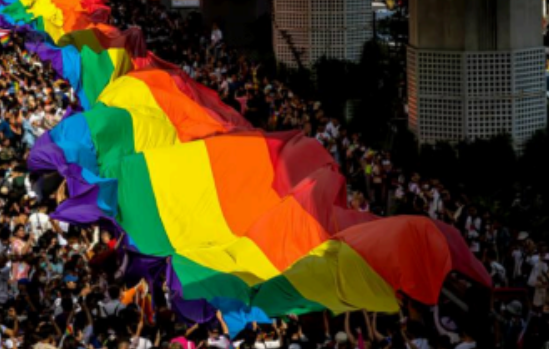
Every year, the month of June is marked by the colourful embrace of the queer community that celebrates how far the LGBTQ+ community has come. This year marked the 55th anniversary of the 1969 Stonewall uprising in Manhattan. The Stonewall uprising was a turning point for the Gay Liberation Movement, which was prominent throughout the late 1960s. In a contemporary context, Pride Month is celebrated through pride parades that promote inclusivity, donations and volunteering while protesting against inequalities. Apart from the members of the community celebrating, even other members and the public participate in such parades. This shows the support and brotherhood that they have for their fellow society members. Nowadays even brands have started showing support during this month through different campaigns, pride-special events, products and much more. Brands have faced major criticism for following the brand and not understanding the cause behind it or rather not committing to it. Recently, with the increase in commodifying any sort of awareness campaign, brands have hopped on the bandwagon to commercialize Pride Month by coming up with their own campaigns and merchandise. These initiatives might look like genuine efforts to show support but a lot of brands have been taking part in ‘rainbow washing’ or capitalising off of queer communities by showing apparent support to them while actually not providing substantial support. Some famous brands were under fire for alleged ‘rainbow-washing’. An example of this is the pride sandwich that was released by Marks and Spencer, called LGBT; “Lettuce, Guac, Bacon & Tomato”. They were criticised for reducing the entire community and their struggles into a basic sandwich. As a response to backlash from conservative groups faced by companies for supporting the LGBTQ+ community, this Pride Month, the number of brands showing outward support towards the community has decreased. This can be observed in the case study of the American retail corporation Target as well as the beer brand Budlight. The aforementioned companies, due to a backlash from conservative groups, were forced to keep a low profile this June. Budlight, a top beer brand, faced backlash following their collaboration with a transgender influencer Dylan Mulvaney. The situation became a focal point when they started gaining criticism even from Pride supporters when it came to light that the beer brand donates huge amounts to conservative lawmakers who are not supportive of the community. Although a lot of brands faced criticism for slacktivism (supporting a political or social cause by putting in minimal effort without actual commitment), there are a number of brands that have been promoting the community with true spirit. Accenture has been going over and beyond to support the community and provide a safe space for them within the working environment. The company has its own ‘Pride Means More’ campaign, which aims at ensuring an inclusive workspace for all employees. The Lego Group, a toy company, launched the ‘A-Z of Awesome’ campaign which aimed at families to have meaningful conversations about different identities. The company instead of painting the existing products with rainbow colours introduced a whole new product. This campaign was really appreciated and liked by the public and the LGBTQ+ community. Hindustan Zinc Limited also took a step towards inclusivity and has introduced a policy that will provide financial support to transgender employees. It was launched in association with the company’s Pride Month celebrations. They had interviewed their employees, where their employees were sharing their experience of having such a supportive and inclusive work space regardless of their gender and identity. In summary, Pride Month serves as a major annual observance for the LGBTQ+ community, celebrating milestones like the Stonewall uprising while fostering inclusivity and awareness. However, along with genuine efforts to support and celebrate, there always exists a notable trend of superficial gestures and commercial exploitation. The challenges faced by companies navigating these waters underscore the importance of authenticity and sustained commitment in advocating for LGBTQ+ rights. The main focus should remain on meaningful actions that contribute positively to the community's progress and well-being and not for a brand’s own welfare.
02 Jul 2024
Anika K